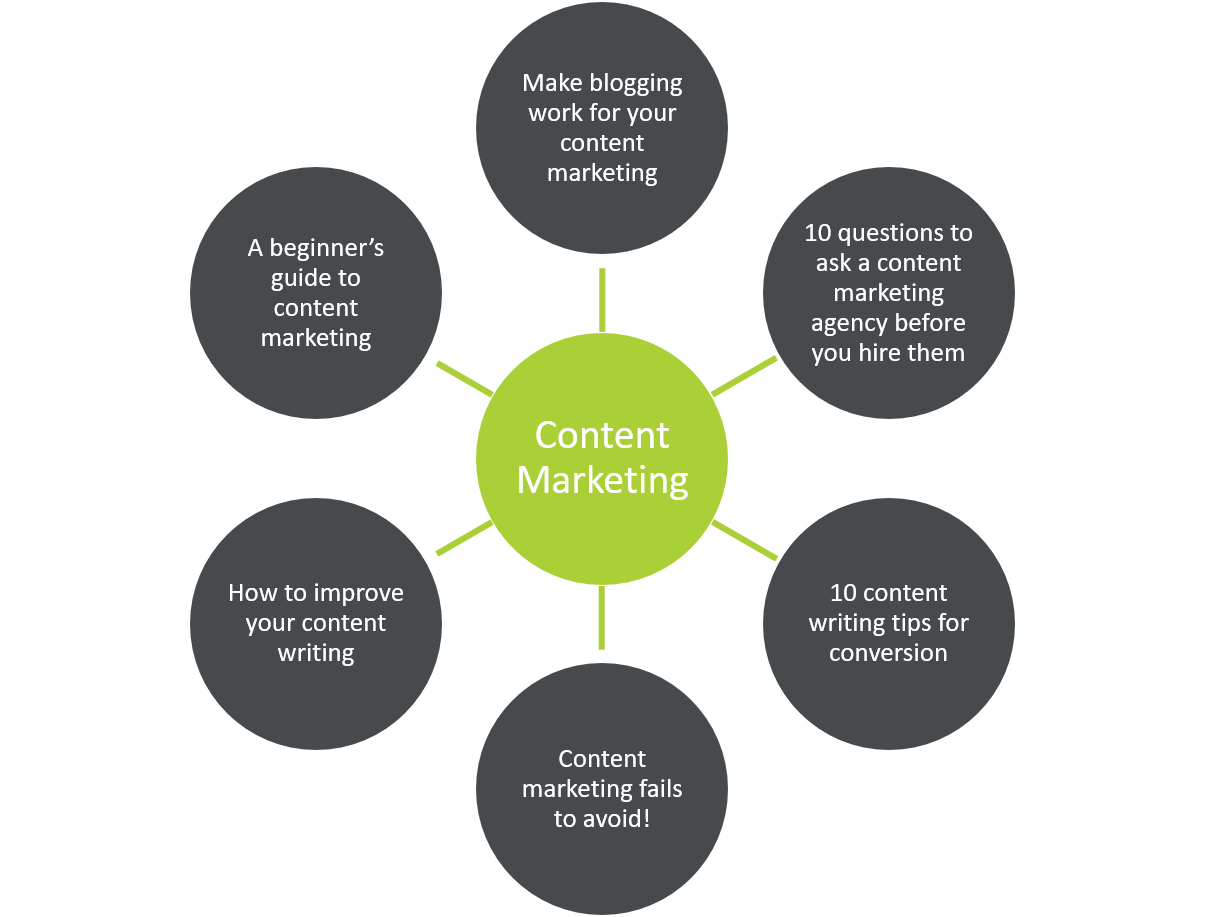Building Topic Clusters For Recruitment SEO: Everything You Need To Know

The recruitment SEO landscape is changing constantly - and in today’s competitive market, it’s never been more important to stay ahead of the competition.
The fact is that in the world of recruitment SEO, there are thousands of agencies competing for attention - and to make things more difficult, the rules are changing by the day.
Influential search engines like Google have now changed their algorithm to favour high-quality, topic-based content.
In fact, however many updates Google throws at us each year, one thing remains the same: high-quality content always comes out on top. That’s exactly why the topic cluster strategy is a great trick to have up your sleeves to make sure your agency is noticed for all the right reasons.
Ready to learn more about SEO for recruitment agencies and discover how to stand out from the crowd? Let’s go!
What are topic clusters, and how do they work?
What are topic clusters, though, we hear you cry? Well, we’re glad you asked. Topic clusters have emerged in recent years as a game-changing way to improve organic search rankings, enhance user experience, and boost conversions.
Topic clusters are essentially a group of web pages that are centred around a particular subject in order to establish authority on that topic.
To break it down further, each topic cluster includes a pillar page that acts as a main hub of content and provides a broad overview of a topic, and the pillar page then links to (and from) a range of cluster pages related to the topic that cover all the different subtopics.
Not only does this linking action signal to search engines that the pillar page is an authority on the topic (which is very important if you want to adhere to Google’s E-E-A-T principle), but it also organises your content in a way that enhances user experience.
Essentially, when people search for information, they usually have specific questions they are looking to answer - and the goal of topic clusters is to address these queries by creating a cluster of interconnected content.
By clustering content around a particular topic, then, you can establish authority on the subject matter by providing in-depth insights and valuable, relevant information to your readers. So, not only do topic clusters help your audience and keep them engaged, but they also show search engines that you are an expert on the subject and reward you in terms of search rankings.
5 things you need to know about building topic clusters for recruitment SEO
1) Identify your core topic
If you’re going to build effective topic clusters for recruitment SEO, you need to start by identifying what your core topic is going to be. This topic should be a broad theme or concept that is related to your business that can then serve as the foundation for your cluster pages.
So, if the topic you are thinking about is narrow, it’s not going to be a pillar page. However, if it touches on many aspects of a broad topic that you can then extend on in your cluster pages - bingo! That’s your core pillar topic.
To apply this to recruitment SEO, for example, “engineering recruitment agency” could be your pillar topic because it is a broad topic with plenty of different subtopics you can expand on in your cluster pages - which leads us to our next point…
2) Explore subtopics and keywords
Next up, you need to conduct keyword research to inform your content and decide on your subtopics. Doing so will help you to understand the different search terms and phrases that your audience use, which will help to guide your content creation process.
Utilise keyword research tools such as SEMRush or Ahrefs to identify high-intent keywords with a good search volume that aligns with your target audiences’ needs. You can then start looking at these keywords in terms of the topics you want your business to compete in, rather than keywords.
Keywords still play into your overall strategy, but topics are now the umbrella under which your keyword strategy operates.
So, if you are creating cluster pages for our engineering recruitment agency pillar discussed above, you could choose titles such as “What to look for in an engineering recruitment partner”, “How a specialist engineering recruitment agency can help you reach your recruitment goals”, or “How an engineering recruitment consultancy can help you attract diverse talent”.
3) Create your content
Once you’ve decided on your pillar and cluster topics, it’s time to get down to the good stuff and start creating your content.
Make sure you’ve got a clear content strategy so you know what your gameplan is. Basically, you want to organise your content around your clusters to create a knowledge base that caters to your audiences’ different interests, enabling each cluster page to serve as a landing page for users searching for specific information related to their needs - which will in turn improve your chances of conversion.
Start by creating your comprehensive pillar page that delves deeply into your main topic. Then, you can begin to create individual blogs or articles for each subtopic which link back to the pillar page.
4) Amplify your content with links
Once you’ve created your content, you need to make sure each of your cluster pages link back to your pillar page. This is a crucial part of the topic cluster strategy, because it helps search engines to understand the relationship between your content and establishes a strong internal link structure throughout your website.
But it’s not just about search engines. Having a clear linking structure will also make it easier for your readers to navigate your content to find the information they are looking for. Google is big on user experience, so making your website as easy to navigate as possible will score your search engine brownie points, too.
Finally, in addition to internal links, external links are another powerful way to show authority and expertise - so think about reaching out to other websites in the recruitment industry to propose guest posts or collaborations and ultimately drive more traffic to your site.
5) Measure success and optimise for the future
The hard work doesn’t stop once you press “publish” on your content, though (sorry). If you’re going to ensure your recruitment content is as powerful as possible, you need to track your rankings and identify potential areas of improvement.
The fact is that no B2B SEO strategy is complete without tracking and analysing its performance - which is why you need to utilise analytics tools to measure things such as organic traffic growth, user engagement, and conversion rates.
You can then identify the topic clusters that are performing well, as well as pinpoint those that need improvement so you can optimise your content and update underperforming clusters for better results.
By refining your recruitment content strategy over time, you can ensure you are targeting the right keywords and topics, understand what’s working, and discover what isn’t - so you can improve and refine your strategy over time to ensure it works as hard as possible.
6) Enhance your performance with recruitment topic clusters
Building topic clusters for recruitment SEO is a powerful and effective approach to driving organic traffic and boosting conversions. By strategically organising your content, focusing on user experience, and creating valuable, informative content, you’ll attract qualified leads and stand out in a competitive market.

Ready for more?
It goes without saying that B2B SEO is a continuous process that requires constant adaptation, so it’s important to stay up to date with the latest trends and developments in the industry to ensure your content strategy is on track. Download our guide to SEO for recruitment agencies for our top tips on smashing your competition!

Ready to Unlock AI SEO for Your Business?
AI SEO isn’t coming — it’s already here. Capture high-intent traffic and build sustainable pipeline growth.
Get Your Free Audit

